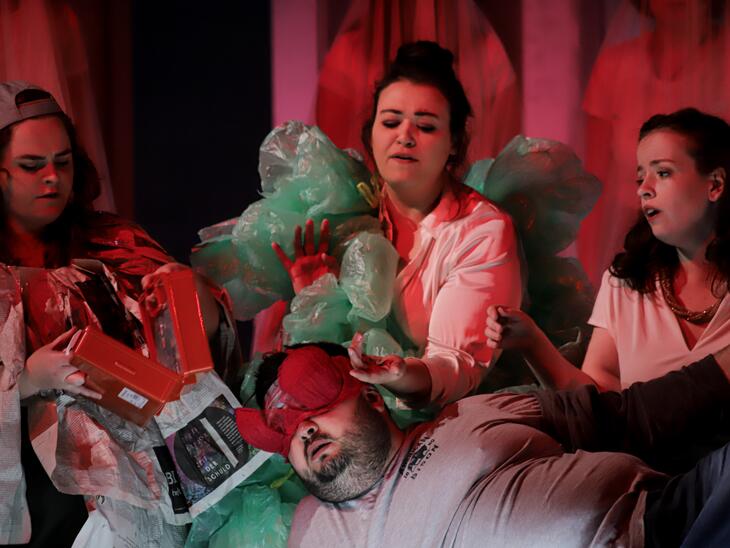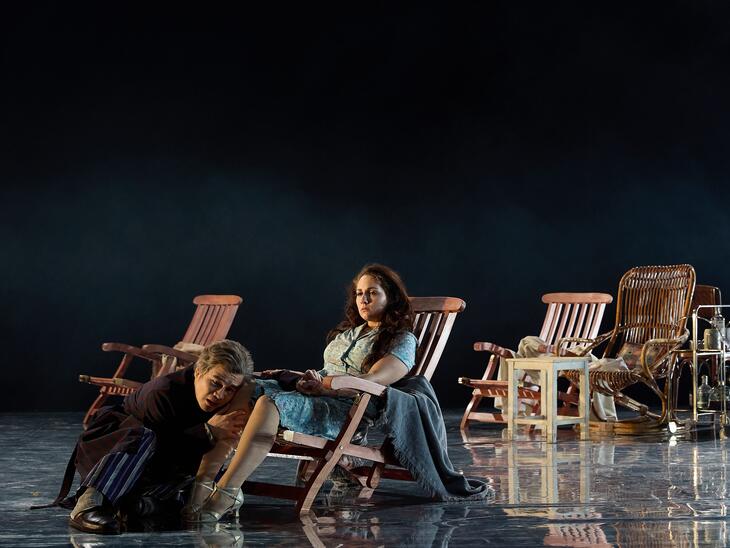Puck, however, also catches two wandering lovers with this magic formula, who now fall in love in completely the wrong constellation, which leads to a total love mess. Now it's up to Puck to set things straight. Initially unaffected by these events, six craftsmen in the realm of the elves are rehearsing the comic tragedy Pyramus and Thisbe , which they want to perform on the occasion of the upcoming wedding of their sovereign. But they too get caught up in the confusion of this midsummer night. Night, forest, a fairytale-like subject with elves, fairies and ghosts - preferred themes of the Romantic period are so frequently anticipated in hardly any other work of world literature as in Shakespeare's A Midsummer Night's Dream from 1595. It is not surprising that this comedy has inspired numerous composers to set it to music. For example, Henry Purcell wrote his opera The Fairy Queen and Ambroise Thomas his opera Le songe d'une nuit d'été based on Shakespeare's original. Felix Mendelssohn created his famous overture and incidental music (including the wedding march) to A Midsummer Night's Dream and Carl Maria von Weber used elements of the material for his romantic opera Oberon . Benjamin Britten, on the occasion of his festival in Aldeburgh in 1960, took up this material and formed a three-act opera from the five-act play, adopting Shakespeare's language almost verbatim. Britten found specific sound spaces for each of the magical and human spheres. Thus the different levels of rulers, lovers, craftsmen and elves are also characterized musically in very different ways. In addition, there are numerous allusions to operatic history in the score, culminating in the performance of the craftsmen in the third act: Britten presents the performance of the play Pyramus and Thisbe as a parody of Italian opera.




